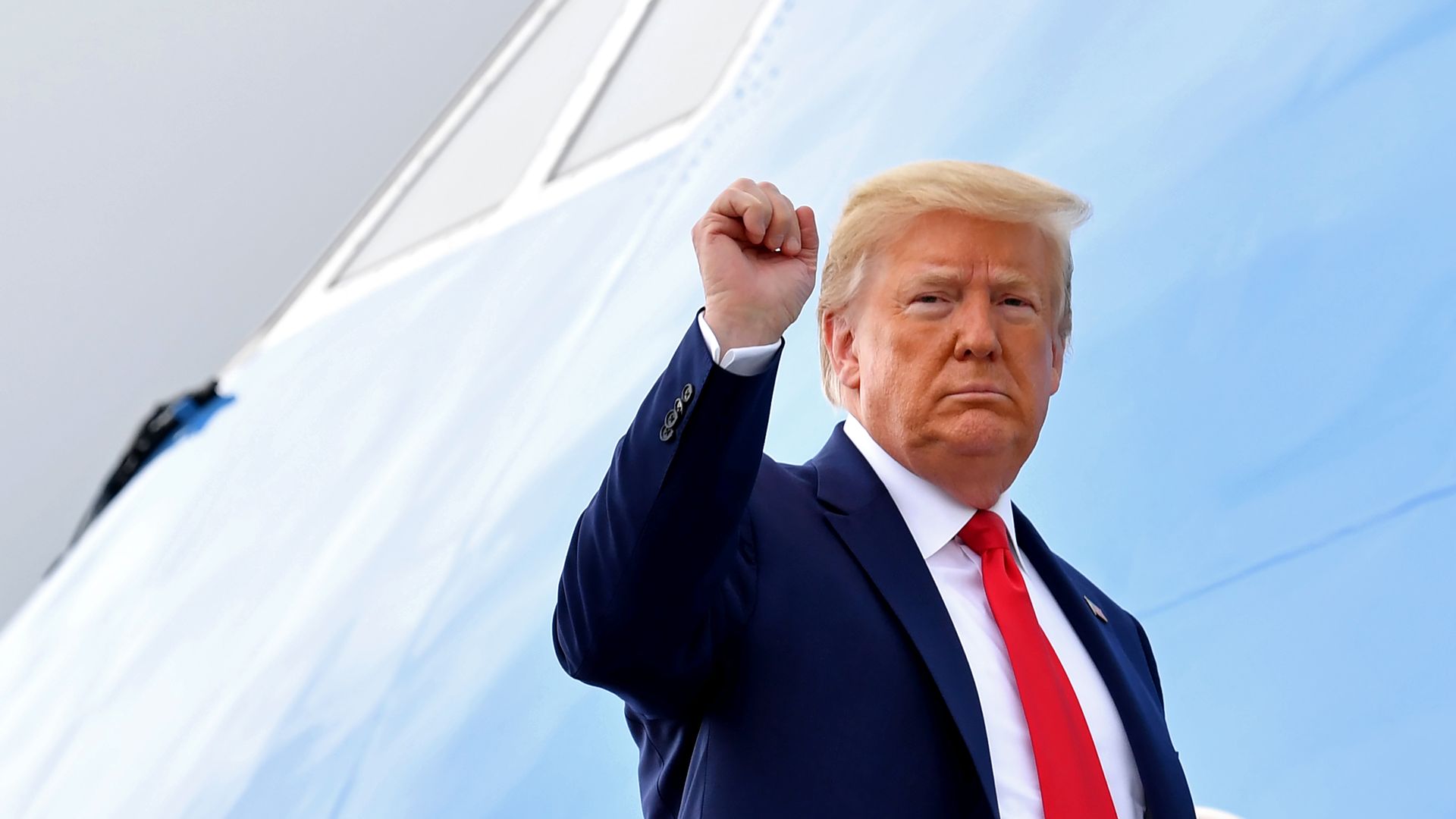Trump to expand coronavirus-related immigration restrictions
Add Axios as your preferred source to
see more of our stories on Google.

Photo: Nicholas Kamm/AFP via Getty Images
The Trump administration will ban entry into the U.S. for foreigners on certain temporary work visas — including high-skilled H-1B visas— through the end of the year, senior administration officials told reporters Monday afternoon.
Why it matters: The highly-anticipated immigration restrictions expand on President Trump's earlier coronavirus-related immigration ban introduced in late April — which was also extended through the end of the year.
- Trump has leveraged emergency powers and economic concern from the coronavirus to slowly shut down large parts of the immigration system— even as he urges states to reopen.
- The administration also announced Monday that it is working toward permanent regulatory reforms that would crack down on H-1B visas and work permits for asylum seekers.
- The official said these steps could open up 525,000 U.S. jobs.
Details: In addition to H-1B visas often relied on by big U.S. tech companies, the restrictions on entry will also affect visas for H-1B spouses, non-agriculture worker H-2Bs visas, short-term workers on J-1 exchange visas, and L visas, which allow companies to transfer employees working overseas to U.S. offices.
- The new restrictions will go into effect at 12:01am on Wednesday, June 24. They will remain in place through the end of the year, which will likely prevent many new H-1B visa workers outside of the country from entering the U.S.
- Certain foreign workers involved in the food supply chain will be exempt from the ban, along with college and university professors on J visas. The medical worker exemption in the April restrictions was narrowed to exempt only those coming in to work on COVID-19 care or research, the official said.
The big picture: Trump's first COVID-related immigration ban prevented foreigners from obtaining permanent immigration green cards if they are outside the U.S. and don't already have valid visas or other travel documents — with some exceptions.
- The State Department issued 43,000 immigrant visas in January, before the restrictions were implemented, per department data. In April, just 1,500 immigrant visas were issued.
This story is updated with details throughout.
